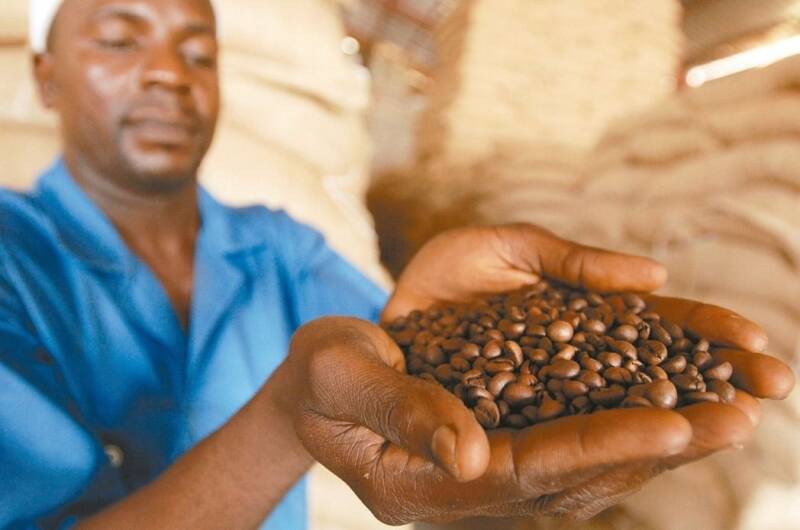刚果精品咖啡——潜力无穷的明日之星

专业咖啡师交流 请关注咖啡工房(微信公众号cafe_style )
Congo's Specialty Brews Look to Be the 'Future of Coffee'
Linda Mugaruka perched her nose above a steaming cup of coffee. Swilling and then spitting, she noted that it was clean and sweet with traces of fruit. On her clipboard she scrawled 94, a high score for a specialty coffee.
Mugaruka, 24, is one of a few cuppers, or coffee tasters, from the eastern part of the Democratic Republic of Congo and the only wom an working as a cupper in the region. This spring, flanked by connoisseurs from South Korea and the United States, she stood over some of the most coveted cups of special ty coffee from her homeland at the nation's fledgling annual coffee festival, held here in the eastern city of Bukavu.
琳达. 穆加鲁卡将鼻子放在一杯冒着热气的咖啡上。 她喝了一大口再将它吐出。 她发现这咖啡清爽、甘甜且带着果香。 她在笔记板上潦草写下94,对精品咖啡算是高分。
24岁的穆加鲁卡是来自刚果民主共和国东部的几位咖啡杯测师(或称咖啡品评师)之一,也是该地区唯一的女杯测师。 今年春天,刚果初创的年度咖啡节在东部布卡武市此间举行,她在南韩、美国鉴赏家围绕下,负责监督来自她的老家、最令人垂涎的几杯精品咖啡的制作。
At the gathering, called the Saveur du Kivu, or Flavor of Kivu, cuppers sought to discover new flavors from a nation troubled by con flict and political instability, yet believed to be one of Africa's most promising producers of specialty coffee, with the potential to be one of the world's biggest producers of commercial-grade coffee as well.
Coffee was once Congo's second-biggest export, after copper, contributing an estimated $164 million to the nation's economic output in the 1980s. But during recent decades of conflict, exports dropped drastically.
在这项名为「基伍风味」的聚会中,咖啡师试图发现新风味。 刚果是个饱受冲突与政治不安困扰的国家,但据信也是非洲最有前途的精品咖啡生产国之一,而且具有成为全球商业级咖啡最大生产国之一的潜力。
咖啡曾是刚果仅次于铜的第二大出口商品,1980年代曾对国家经济产出贡献约1.64亿美元。 但近几十年因冲突不断,咖啡出口锐减。
Now, with millions of dollars in donor funding in recent years to build the coffee industry and help stabilize the region, coffee ex ports have steadily increased and farming cooperatives are attracting the attention of global buyers like Starbucks and the Israeli company Strauss. This is despite an overall economic crisis in Congo, political turmoil over President Joseph Kabila's refusal to step down at the e nd of his term and violence including atrocities carried out by a government-linked militia that were cited by the United Nations.
During the first half of the 20th century, as the country was subjected to exploitative Belgian rule, extensive coffee plantations rolled through the green hills of eastern Congo. The country's beans were roasted in coffee houses in Brussels and Rome, and its coffee was among the world's finest.
The coffee industry was decimated after rebel groups marched through those fields in the aftermath of the Rwandan genocide in 1994 and the toppling of Congo's long-standing dictator, Mobutu Sese Seko, in 1997.
而如今,由于近几年有数百万美元捐助资金用于打造咖啡业与促进区域稳定,咖啡出口出现稳定成长,该国的农业合作社也开始吸引全球买家如星巴克和以色列史特劳斯公司的眼光。 尽管这段期间刚果还发生了全面经济危机,总统约瑟夫. 卡比拉任满拒绝下台引发政治动荡,以及林林总总的暴力事件,包括联合国所谴责的民兵暴行,这些民兵与政府有关联。
廿世纪上半叶,在刚果仍受制于比利时的剥削统治期间,连绵的咖啡园遍布刚果东部的青山。 该国的咖啡豆在布鲁塞尔和罗马的咖啡馆里烘焙,刚果的咖啡是世界顶级的咖啡。
1994年卢安达发生种族大屠杀,1997年刚果长期独裁者莫布杜被推翻后,叛军团体穿过这些林地,咖啡业同时遭到摧毁。
2022-05-05 03:22:22


